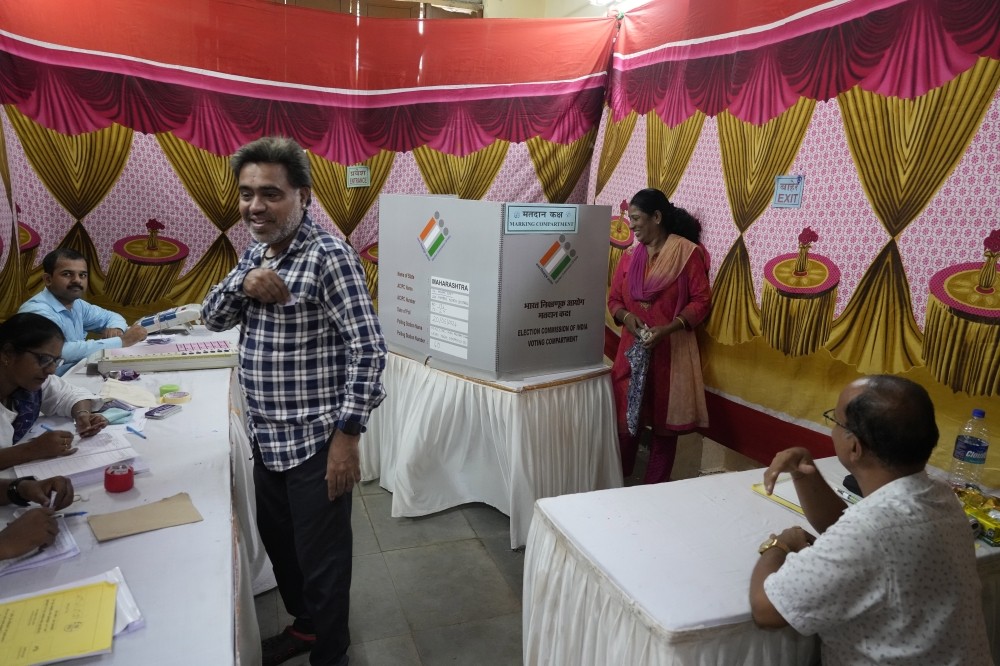20/05/2024
20/05/2024

AYODHYA, India, May 20, (AP): When Indian Prime Minister Narendra Modi opened a Hindu temple on the site of a razed mosque in the city of Ayodhya in early 2024, he was making a bet on mixing Hindu nationalism and politics ahead of a national election in which he's seeking a rare third term.
On Monday, that bet faced a test as the northern city swarmed with voters, many of them Hindu devotees, lining up in scorching heat as India began the fifth phase of its six-week-long staggered national election.
Modi’s Hindu nationalist politics have resonated with many supporters, and most polls show his Bharatiya Janata Party in the lead. But it’s not clear whether that fervor can carry him to victory as Indians face rising unemployment and inflation.
"Issues like unemployment, inflation, lack of security and the government’s attempts to muzzle dissent are glaring problems that the BJP has no answers to,” said Amarnath Agarwal, a political analyst.
The staggered election will run until June 1 and nearly 970 million eligible voters, more than 10% of the world’s population, will elect 543 members to the lower house of Parliament for five years. The votes are scheduled to be counted on June 4.
Monday’s polling, in constituencies across six states and two union territories, is crucial for the BJP, as it includes some of strongholds in states like Uttar Pradesh and West Bengal.
Modi hopes to see high turnout in areas like Uttar Pradesh's Ayodhya, where a controversial temple to the Ram was built on the grounds of a centuries-old mosque razed by Hindu mobs in 1992. Its opening was seen as a political triumph for the populist leader, who is seeking to transform the country from a secular democracy into a Hindu state. It also fulfilled a longstanding demand of the majority Hindus.
But Agarwal, the political analyst, said excitement over the Hindu temple may not have translated into a significant political issue for the ruling party and it is "evident from the lack of interest among voters, reflected in a notably low turnout.”
Most poll surveys show Modi and his party leading in the race for the lower house of Parliament. However, it faces stiff resistance from the opposition, a broad opposition alliance led by the Indian National Congress and powerful regional parties, which has tapped into discontent over bread and butter issues.


